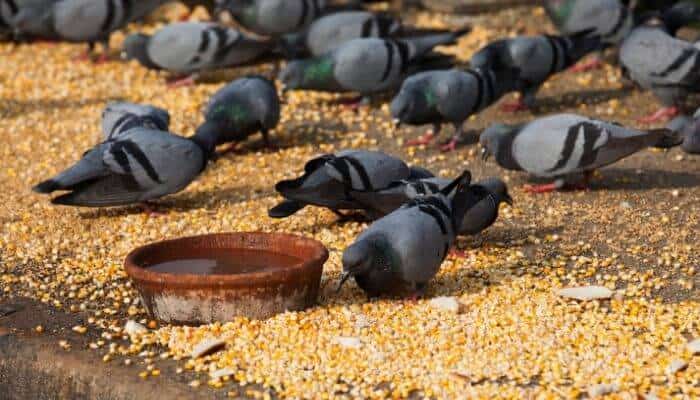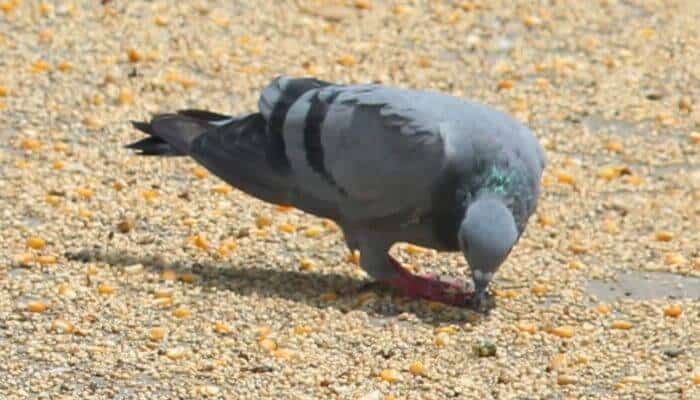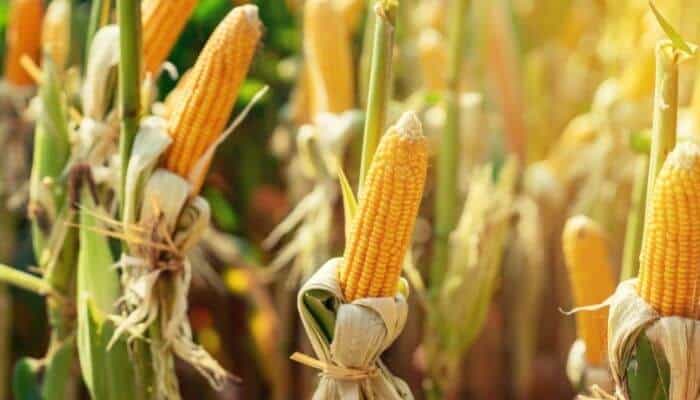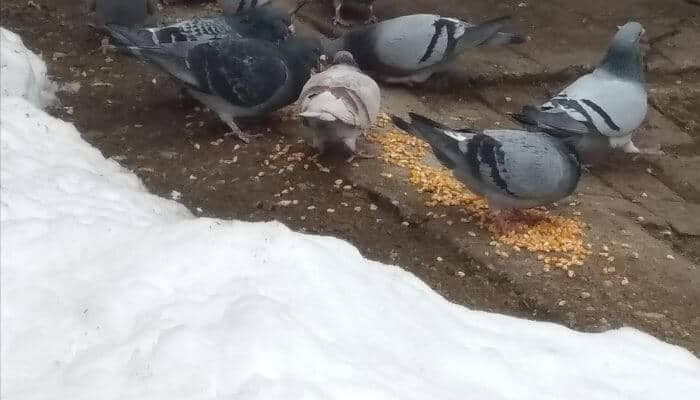Yes, pigeons do eat corn!
Corn is a great food for pigeons because it supplies them with all the essential nutrients they need.
Though it is important to not overfeed pigeons corn as it can lead to excessive weight gain if consumed too often or in high quantities.

That said it is commonly included in most pigeon diets and is a natural part of the diet of any granivorous bird.
It is is inexpensive and readily available.
The Pigeon Diet
As a pigeon owner, you have to understand as much as you can about your birds to keep them healthy and happy – particularly if you are raising them for show or racing.
This means knowing about biosecurity measures, common pigeon diseases, problems such as sour crop and what a pigeon eats.
You need to know what to feed your pigeon, as well as what to definitely NOT feed it!
Obviously, a pigeon’s diet out in the wild is much more a matter of opportunistic feeding, but for those keeping birds as pets, there is much to learn.

As a granivorous bird, the bulk of a captive pigeon’s diet is going to be grains, seeds, grasses, berries and nuts.
This is a widely accepted depth of knowledge for the average pigeon owner but, diet and nutrition is more complicated than you think.
For example, did you know it is not advisable to feed your pigeons some of the dried pulses, such as lentils or avocado as it is toxic to birds?
You should always read the ingredients labels of any proprietary food you buy for your bird feeders. You need to know what is in it as well as whether it meets nutritional requirements.
Some feed mixes are of low quality and do not provide all the nutrients and vitamins a pigeon needs. High-quality mixes will address overall nutrition. Bird pellets are a good choice because they too look to satisfy most nutritional needs.
A common ingredient in feed mixes is shelled corn. Unshelled corn is not always so friendly to a pigeon’s beak so food mixes will contain soft kernels or even flakes of corn.
Why is Corn Good for Pigeons?
Corn contains a high number of nutrients that are beneficial for pigeons, and it is also high in fat compared to other foods that a pigeon will regularly eat.

This high fat content is a good thing because it will help your pigeons to put on the extra weight that they will need to keep them comfortable and insulated during the colder winter months.
Aside from being high in fat content for weight gain, corn also boasts a number of other benefits for the overall health of a pigeon.
Some of the best of these benefits come from the nutritional makeup of corn, namely:
- Beta Carotene – this is helpful in maintaining the eyesight of a pigeon. Eyesight is, of course, incredibly important!
- Fibre – this is important because it can help to ensure that your pigeon’s digestive system operates efficiently.
- Protein – this is important in a diet to help encourage proper growth and proper maintenance of the pigeon’s body.
What Time Of The Year Should Pigeons Eat Corn?
As alluded to already, while corn can be provided as a food source throughout the year, it is best recommended during the winter months.
As soon as the temperatures start to drop, pigeons need to begin to put on extra weight to stay as insulated as possible.
The easiest way to do that, of course, is by eating fatty foods, and corn is on the higher end of the spectrum when it comes to fatty foods that are good for pigeons to consume.

Importantly, the fats in corn are healthy fats!
What is important to know regarding corn, however, is that you don’t want to overload your pigeon with it all year round.
It is crucial for them to bulk up for the winter, but there is no need for a bird to get so large in the summer when they don’t need to be insulated.
Just like with every other living creature, too much fat when they don’t need it is always going to be detrimental to the pigeon’s health, so make sure that you achieve the right balance.
A good way to ration the corn you provide or to only provide during the colder months is to serve your birds popcorn.
You can supply your birds with a feed mix that doesn’t contain corn during the warmer months and fill your bird feeders with a healthy treat of popcorn during the winter.
Food mixes that contain wheat and sorghum are good alternatives to mixes containing corn.
If you want to feed uncooked corn to your birds (i.e. unpopped corn), you can use it as a forage food and scatter it in your garden.
Foraging is good for stimulating your pigeons through exercise and fulfillment.
The Takeaway
Corn is a healthy food for pigeons but it should be fed to them in moderation, ideally in colder months.
